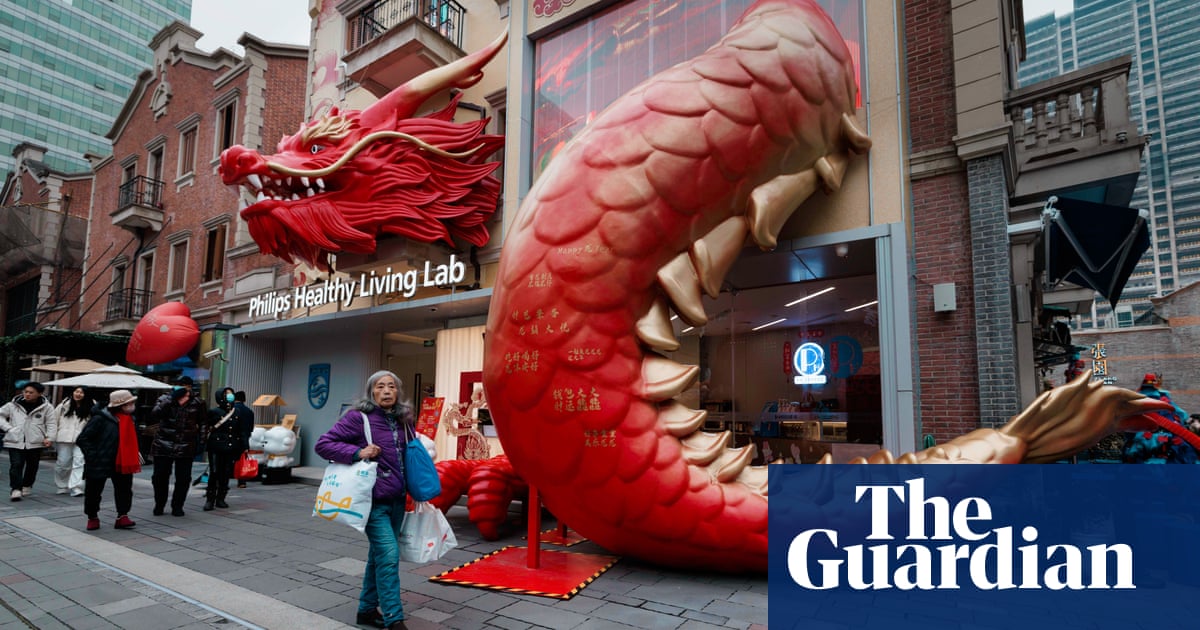
China’s economy has gone from bad to worse – and it is only February.
Figures released on Thursday showed consumer prices fell by 0.8% in January compared with a year earlier, outstripping economists’ expectations and marking the biggest contraction in 15 years.
Prices in China have been flat or falling nearly continuously since July. Although the country’s zero-Covid policy was abandoned more than a year ago, consumers are still cautious about spending, both on everyday goods and on property, which has traditionally been the driver of growth in China’s gross domestic product. Income growth has slowed, and high unemployment rates are pushing down wages for some workers.
Some economists are worried that persistently low demand in China could have knock-on effects around the world as it may start to rely on demand from other countries to revive its economy.
That concern is especially acute as Beijing policymakers have tried to offset the downward spiral in the property sector by betting big on industrial manufacturing, particularly in green technologies such as electric vehicles and solar panels. Banks are being encouraged to increase lending to manufacturers, while loans to the real estate sector have decreased. A surge in exports could exacerbate tensions around trade tariffs and dumping. The UK is already investigating whether Chinese excavators are being sold at unfairly low prices, while the European Union has launched an anti-subsidy inquiry into Chinese electric vehicles, a move that has caused consternation in Beijing.
“China needs to take actions quickly and aggressively to avoid the risk of deflationary expectation to be entrenched among consumers,” Zhiwei Zhang, chief economist at the Hong Kong-based asset manager PinPOINT, told Reuters.
The National Bureau of Statistics of China said the year-on-year drop in consumer prices was partly explained by the fact that in 2023 the lunar new year holiday, which traditionally boosts spending, fell in January. This year it starts on 10 February.
Analysts are now looking at whether the year of the dragon will breathe some much-needed fire into the belly of the Chinese economy. Food prices in particular, which fell 5.9% in January, are expected to get at least a short-term boost as people gather for festive feasting. One of the biggest drags on prices was pork, which slumped by 17%.
But the longer term strains in China’s economy are proving stubborn. Unlike previous downturns, Beijing has not stepped in with a massive stimulus package. The Chinese president, Xi Jinping, says he wants to focus on “high quality growth” rather than the double-digit acceleration that China experienced in the early 2000s. All eyes are now on the Two Sessions, the country’s annual parliamentary meetings that start on 5 March. The growth target for 2024 is expected to be similar to last year’s 5%. That is modest by Chinese standards, but it may be the new normal for the world’s second-biggest economy.












